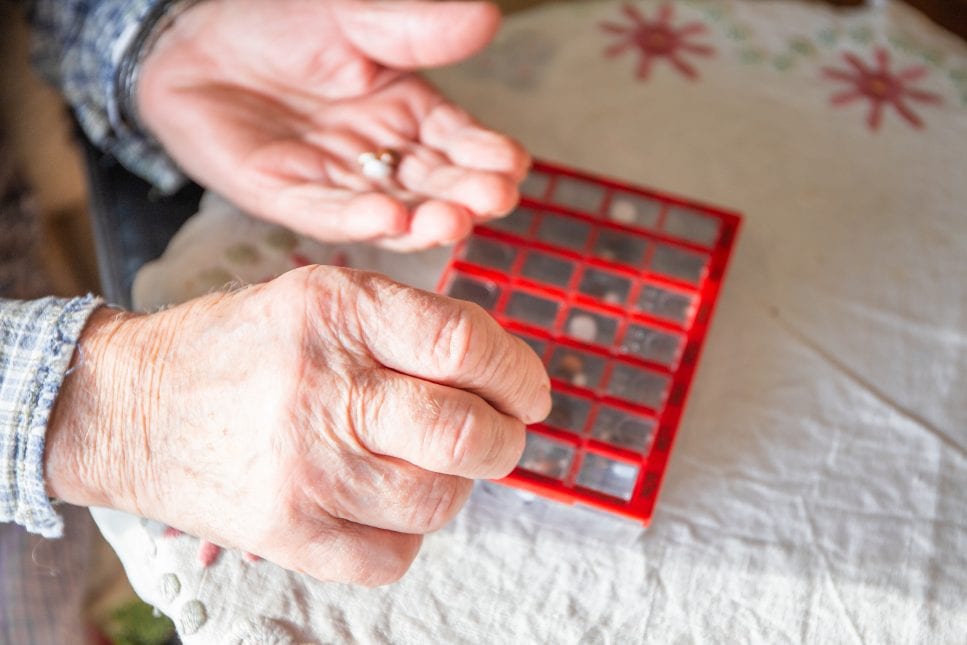For many service users wishing to manage their own medication, a dosette box, is often the most helpful way of supporting safe self-administration of medicines. Even for service users who previously took medication from boxes and bottles, these simple aids can be a helpful way of maintaining independence whilst allowing for discrete checks to ensure that doses have been taken as prescribed.
However, a study from the University of East Anglia (UEA) has reported that some older people who switch to using dosette boxes experienced adverse effects so serious that they resulted in hospital admission. The study of over 75s found that overall, those who switched to a dosette box, having previously relied on traditionally packaged drugs, were far more likely to become unwell than those not using them.
The UEA study found that the increased risk of adverse effects amongst older people switching between systems was highly likely to be due to them receiving higher doses of medication as a result of complying with their medication regime more effectively.
Dr Debi Bhattacharya of the UEA research team explained: “On average, when patients who had previously taken their medication sporadically were switched to a pill organiser, they took all of their medication and became unwell, whilst those who remained on usual medication packaging did not have any adverse effects.”
Follow Our 4 Tips to Preventing Serious Side-Effects When Using Dosette Boxes
- Discuss the Proposal with the GP Before Going Ahead: Always consult with the person’s GP about any change to a new system so that a review of relevant medication can be carried out and any adjustments to the doses considered.
- Involve the pharmacist: Your pharmacist will be able to discuss the different types of dosette boxes available and recommend the most suitable for the individual needs of your service user.
- Educate the Service User and Family: Explain the risks to your service (and their family if appropriate) so that they’re aware of the possibility of adverse effects during the change of systems. Helping the person to understand that they may feel unwell and that they should report any unusual symptoms can enable you to act promptly and seek medical advice if required.
- Increase Vital Sign Monitoring: If particular side effects are known e.g. drop in blood pressure, retention of urine or drowsiness, take measures to monitor for any signs of these symptoms and seek advice if needed. Early GP involvement can ensure that medication doses are adjusted and prevent the risk of hospital admission.

